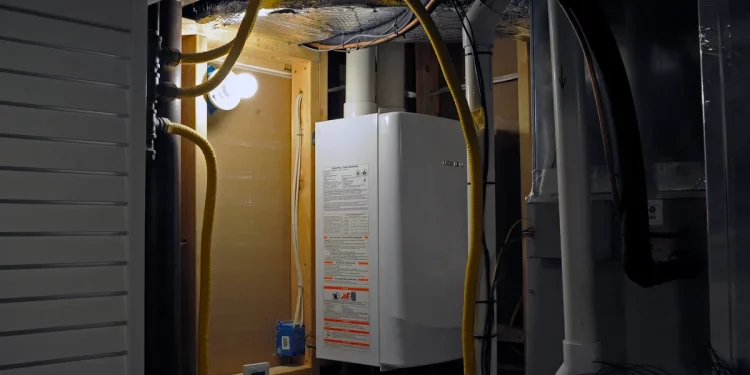Have you grown weary of having cold water? With one of these little, incredibly efficient appliances that heat water as you require it, this is not a problem. The following information will help you choose, set up, and use a tankless gas hot water heater.
Is It Worth It To Install A Tankless Water Heater?
The justifications for purchasing a tankless water heater are as follows. In comparison to tank-type heaters, it only produces hot water when you need it and for as long as you need it, saving you between 27 and 50 percent on fuel expenses. (The majority of the fuel burned by a standard gas-fired tank is lost, at 40 to 50 percent.)
Additionally, there is essentially little danger of a catastrophic leak because there isn’t a tank to fail.Tankless heaters have also advanced significantly since their introduction in the United States in the 1990s, adding features like built-in recirculating pumps (for “instant” hot water), wireless communication, and alerts for when a device requires repair.
Our guide to tankless water heaters is provided below. We’ll go through what you need to know before you buy one—and before the installation shows up—and the working quirks of the units, so there are no surprises if you choose to go tankless.
Maintenance Of Tankless Water Heaters
Enlist a professional to do annual maintenance, which will include checking the burner and cleaning or replacing the water and air filters. A vinegar flush every 500 hours prevents mineral buildup, or scale, from blocking the heat exchanger in places with hard water. Both professionals and homeowners can complete that 20-minute work.
How Durable Are Tankless Water Heaters?
Tankless gas water heaters should last 20 years or longer, which is twice or three times as long as tank-style heaters. The lifespans of tankless electric units are typically 7 to 10 years.
Tankless Water Heaters: Pros And Cons
PRO: They Are Small
Because federal requirements now call for greater insulation to decrease standby heat loss, newer tank-type water heaters are larger. As a result, they might not fit in places where a vintage heater with the same capacity might. Tankless gas heaters hang on the wall and are about the size of a suitcase.
PRO: They Are More Secure
They won’t leak large amounts of water, harbor Legionella bacteria, or topple over during an earthquake, unlike tank-style heaters. Additionally, because the air supply and exhaust vents are sealed, back drafting cannot cause carbon monoxide to enter the home.
PRO: They’re Simple To Winterize
Vacation property owners are well aware of how long it takes to drain a water heater tank before winterizing a home. A tankless heater may be quickly drained using a compressor; after that, all you have to do is unplug it.
CON: They React Poorly To Slow Flows.
These devices cut off automatically if there is too much scale buildup in the pipes, the aerators on the faucets and showerheads are clogged, or a turned-down faucet limits water flow to roughly 0.3 gpm.
CON: It Takes Time For Payback
Depending on its efficiency and how much hot water is consumed, a $1,000 tankless gas heater may only save a household approximately $100 year compared to a $400 or so tank-type heater.

















































